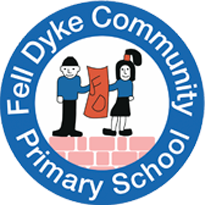Geography
Our Aim
Aiming to help pupils gain knowledge about diverse places, people, resources and natural and human environments, the 2014 National Curriculum specifies key areas for children to study. Through this, children at Fell Dyke learn to ask perceptive questions, think critically, weigh evidence, sift through arguments and develop perspective and judgement. Geography should help children understand their place in the world and make connections between different places, people and human and physical processes, resulting in a curiosity and fascination about the world.
Curriculum Organisation
We have mixed age classes in both Key Stage 1 and Key Stage 2. This means some year groups curriculums alternate to ensure that all topics have been covered. The most relevant geography topics have been grouped together to be taught within a two-year period. We used Chris Quigley’s Essentials to help us identify core knowledge and skills children will need to help develop their understanding of the world as they move through our school. Knowledge and skills acquired earlier in the school are built upon steadily in each new year group to ensure a broad, balanced body of knowledge develops over time.
In Nursery and Reception, children learn that they have similarities and differences that connect them to where they live and their cultural experiences. They are encouraged to show interest in their local area and immediate surroundings and consider how environments vary from one another. They will develop an understanding for different occupations and ways of life.
In Year 1 and Year 2 the focus is on building the children’s knowledge of where Gateshead is and developing a sense of perspective in relation to the four countries of the United Kingdom. They begin to use world maps to identify the continents and oceans of the world, as well as using local maps with symbols. We want the children to have a good understanding of how countries differ in terms of climate and topography, for example when learning about Rainforests.
In Year 3 and Year 4, the knowledge and skills from Key Stage 1 are built on through further units which develop their knowledge and understanding of the wider world including Europe. Map skills are embedded as children begin to use four figure grid references. Children also explore the counties within the United Kingdom and how these vary in terms of population and landscape. Physical geography is studied in more depth including, Rivers, Vegetation belts, Earthquakes and Volcanoes, topics which younger children may have found too hard to understand due to the ambitious vocabulary usage we aim to foster amongst our pupils in this subject. Where possible, visits are conducted to further enhance their learning and personal experiences are drawn upon. Children are also introduced to interdependency within our world to understand how Fairtrade is conducted between countries.
Finally, in Year 5 and Year 6, children use their previous learning to explore controversial geographical issues such as Climate Change. They further develop their knowledge and understanding of physical geography by learning about The Water Cycle, Mountains and The Coast. Our oldest children also start to learn about unfamiliar continents, North and South America, focussing on the rich variety of human and physical geographical features. Building upon their previous skills, children use the eight points of a compass and six figure grid references with greater accuracy.
Throughout their time at school, children will be able to experience high quality educational visits out (and visitors in to school) to learn about geographical processes as close to first hand as is possible. These include visits to the local area to observe different landscapes (such as the River Tyne as it flows through Prudhoe and Ovingham) as well as specialist locations such as water treatment works. Wherever possible, locations with a local link to the unit being covered are visited as we seek to further broaden the children’s vocabulary in Geography.
Knowledge, Progress and Assessment
After completing our Geography curriculum, we would expect the children have acquired a broad and sufficiently deep level of knowledge so that they will understand the world they live in and the diversity that exists within it. To support this, we have designed assessment statements that ensure all children can be challenged at an appropriate level in each year group. These statements link to knowledge and skills and always build on what children have learned earlier in school. Our teachers will highlight key statements that indicate the level of the children’s understanding once each topic has been completed.
Ideally, we would like children to remember and be able to recall as much as possible about their topics but we also believe in the value of knowledge of how to be a good geographer: asking questions, making links, considering the impact of physical an human processes and making decisions based on geographical evidence. This will prepare the children for their next steps in secondary school and support them in their adult lives too.
